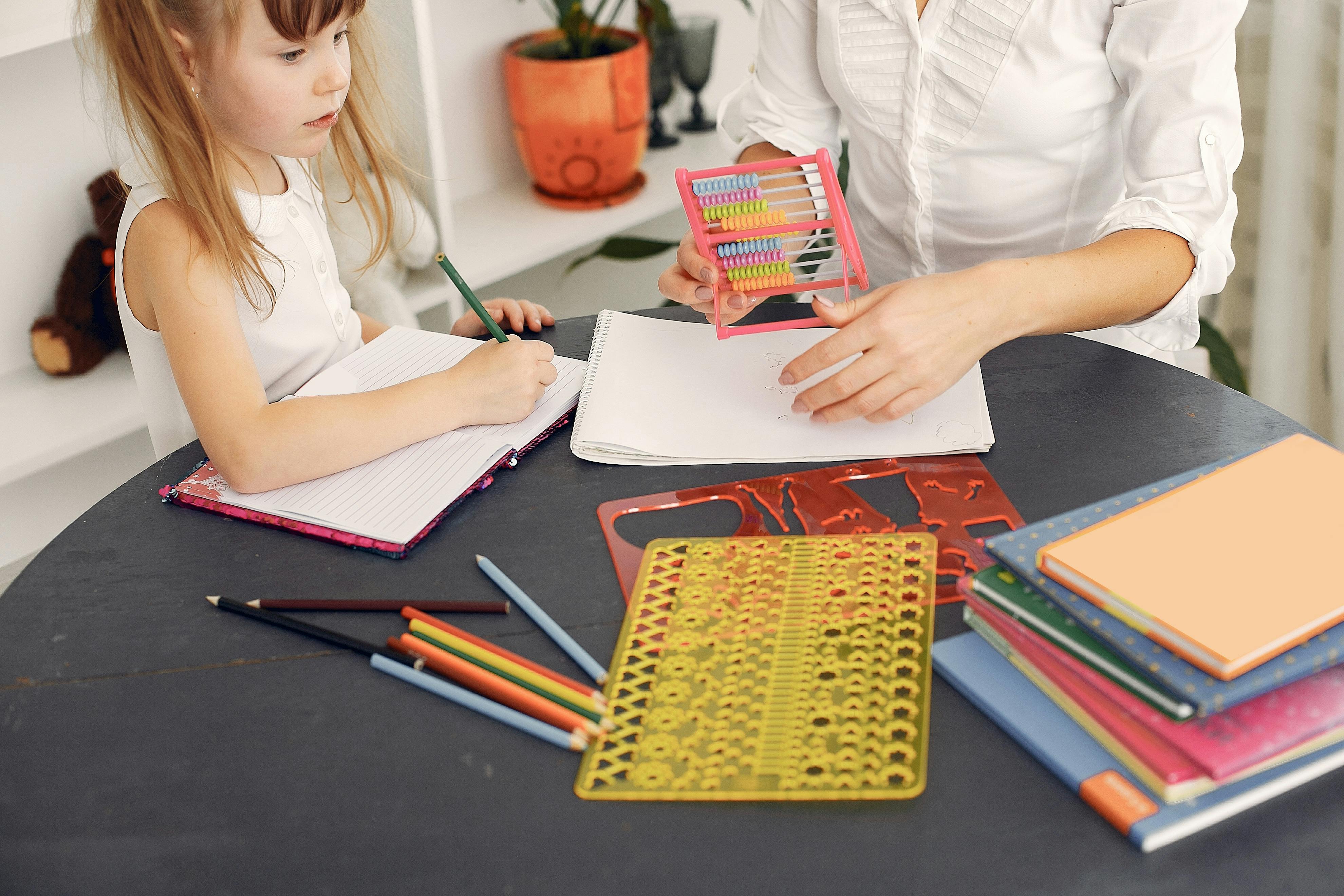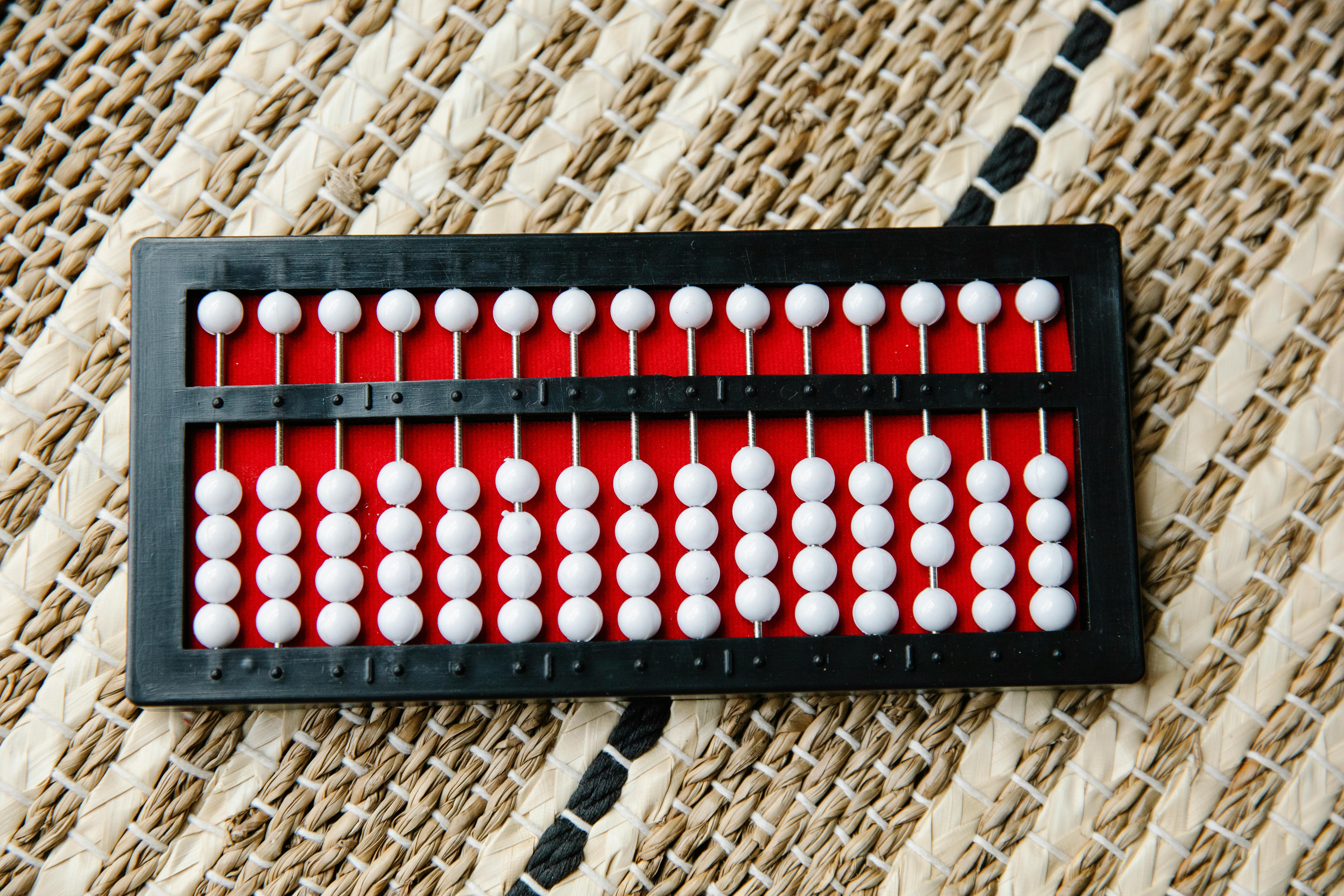What is the Right Age to Start Abacus Learning for Kids
Parents want to find ways for their kids to learn besides what is taught in school as education changes. An abacus math is a way to learn that is getting a lot of attention around the world. Abacus mathematical tool is sometimes used to help people think and do math better. But they can be useful for more than that. When should kids begin to learn how to use abacus maths? Before you sign your kid up for an abacus training class, you should think about that question.
Understanding the Abacus Learning Method
The abacus for kids has been used to teach math for a very long time. It looks like an easy tool. Not only can
you count beads with it, though. To do hard math in their heads, kids who learn with beginner abacus finally
learn how to picture the abacus. We call this a "mental abacus." Abacus for beginners helps kids solve problems
more quickly and correctly by using the parts of their brain that are good at seeing, thinking, and remembering.

Ideal Age to Begin Abacus Learning
The best time for kids to learn how to use abacus learning is between the ages of 4 and 7. Some people believe this is the best time for brain growth. Kids this age are interested and pick up on new ideas quickly. Abacus lessons online help them learn a lot because it lets them see and do things. Memory, attention, and logic paths are being built quickly in the brain during these crucial years. Joining the abacus tutoring early on helps build these skills and sets you up for future school success.
How Abacus Learning Supports Academic Excellence
Kids who learn with an abacus do better in school, especially in math. One big reason why parents like it so much is this. Kids who use an abacus to do math questions often do better than their peers at mental math, logical thinking, and even solving science problems. You get very good at numbers when you learn how to use an abacus to see them. This helps you understand algebra and geometry, which are more tough math ideas later on.
Research has shown that students who learn to use an abacus early improve not only their math skills but also their ability to understand what they read and think critically. This cross-functional improvement takes place because using both parts of the brain when practicing with an abacus helps the brain grow in a healthy way.
Emotional and Social Benefits of Learning Abacus
Abacus classes can help with more than just schoolwork. They can also help with mental and behavioral problems. Young people feel better about their skills when they can see themselves doing things faster and right. When kids are young and afraid of math (often called "math phobia"), this boost in self-esteem helps them. Abacus jobs that you do with a group also help you work together, be patient, and talk to each other.
Kids get a healthy sense of competition when they take part in abacus tests or tournaments. This keeps them
motivated as they learn a new skill. When they learn well, these little wins also change how they handle
problems in other parts of their lives.

Parental Involvement Makes a Difference
With help from an adult, a child ages 4 to 6 can learn math. Talk to your abacus teacher often, practice at home, and enjoy the little things that you do well. You can learn faster with these. Kids still need help and support at home, even though most abacus apps are meant to be fun and engaging.
Why Consistency is Key
It gets better over time to use an abacus. Kids need time to get good at math. For kids, practicing twice or three times a week is a good idea. The different steps help them keep their minds sharp and remember new things. Staying consistent and inspired through each level is important for long-term brain growth and math success.
It can pay off for a lifetime to start learning how to use an abacus early and keep at it. You can use it to help
with schoolwork or to improve your skills over time.

Factors to Consider Before Enrolling
Before your kids join abacus online classes make sure your child:
- Knows the numbers from 1 to 10;
- Can focus and sit still for short amounts of time;
- Enjoys planned activities like play or learning;
- Is ready to learn how to use an abacus.
If you want to do well in abacus course, you should find a place to learn that is both safe and fun.
Conclusion
We want every kid in our abacus math tutoring at Jainam Online Classes to enjoy math and be good at it. We give young minds the tools they need to do their best by combining the abacus's long history of use with new ways to teach. You can find us by searching abacus near me. Abacus classes wellington helps them learn a lot because it lets them see and do things. Memory, attention, and logic paths are being built quickly in the brain during the abacus classes for kids.
FAQs
Is abacus good for a 4-year-old?
Abacus math tuition is fantastic for 4-year-olds. These kids want to see and touch to learn. Abacus maths training helps you focus, memorize, and understand numbers. This makes it a fun and effective way to teach basic math skills early on.
What’s the best age to start mental math training?
Between the ages of 5 and 7 is the best age to introduce abacus to children. Kids this age can conduct basic math and visualize it. Abacus for kids makes you faster, more precise, and more confident in solving problems without calculators.
Can preschoolers learn abacus?
Yes, kids can use an abacus in a pleasant, age-appropriate way. Bright beads and simple chores assist young toddlers learn counting and number concepts. Early abacus use increases math skills and brain growth through hands-on learning.





